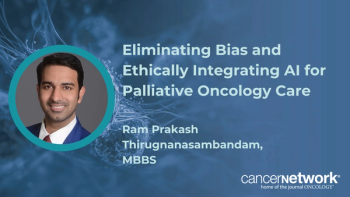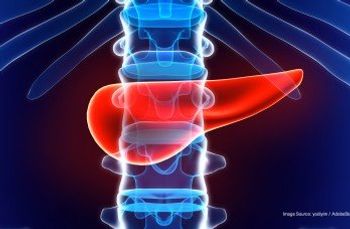
Warfarin Another Option for Cancer-Associated Thrombosis
Warfarin is an acceptable alternative to low-molecular-weight heparin for patients with cancer-associated thrombosis, according to a new study.
Warfarin is an acceptable alternative to low-molecular-weight heparin (LMWH) for patients with cancer-associated thrombosis, according to a new study.
LMWH is considered to be the anticoagulation of choice for the treatment of cancer-associated thrombosis. However, there are little data to support the best ongoing anti-clotting therapy beyond 6 months, said lead author Chatree Chai-Adisaksopha, MD, of McMaster University in Hamilton, Ontario, Canada.
Dr. Chai-Adisaksopha presented the results at the 57th Annual American Society of Hematology (ASH) Meeting and Exposition, held December 5–8 in Orlando, Florida (
Dr. Chai-Adisaksopha and colleagues conducted a study to evaluate the efficacy and safety of warfarin vs LMWH in patients treated with an initial course of 6 months of therapy. They performed a retrospective analysis of 1,502 consecutive patients enrolled in a registry. The patients had objectively proven venous thromboembolism with active cancer and were planned to be treated with LMWH for 6 months.
They divided the patients into two groups at 6 months after diagnosis: one group of 763 patients continued to receive LMWH and the other group of 739 patients was switched to warfarin. Because LMWH requires self-injections, warfarin is often thought to be preferred because it is an oral medication, he said.
After a median 11 months follow-up, recurrent venous thromboembolism was apparent in 55 patients (7.2%) who continued to receive LMWH and in 44 patients (6%) who switched to warfarin. The cumulative incidence of major bleeding was 2.6% in the LMWH group and 2.7% in the warfarin group.
“The main outcome-recurrent venous thromboembolism-shows that there was no statistical difference between the two groups,” Dr. Chai-Adisaksopha said.
In conclusion, he said that the study found that switching to warfarin is not associated with an increase in recurrent venous thromboembolism, major bleeding, or total bleeding when compared to continuing LMWH. Therefore, the researchers believe that warfarin is an acceptable alternative to LMWH for patients with cancer-associated thrombosis.
Dr. Chai-Adisaksopha added that this finding needs to be confirmed in a prospective study.
Newsletter
Stay up to date on recent advances in the multidisciplinary approach to cancer.











































